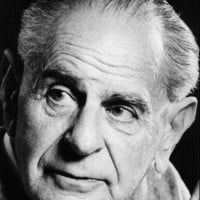Top 10 Western Philosophers
Philosophy can be classified as highly complicated. Nonetheless, we still see many varying thoughts in philosophy and embrace them. Although some people here may not have ideas that are still prominent today, their ideas still helped to reshape things at their time. These are the greatest thinkers in politics, religion, science, and mathematics to have come from the Western or Occidental world. Socrates was a classical Greek philosopher credited as one of the founders of Western philosophy, and as being the first moral philosopher, of the Western ethical tradition of thought.
Socrates was a classical Greek philosopher credited as one of the founders of Western philosophy, and as being the first moral philosopher, of the Western ethical tradition of thought. He was the man who founded Western philosophy, so of course he's here. Although he has no written works, his ideas were spread around through his pupils, especially Plato. He developed the Socratic method and established the limitations of human knowledge.
The founder of philosophy as we know it in the Western world deserves credit for bringing about a new age of thought.
Socrates, the ideal thinker. He questioned everything.
 Plato was a philosopher in Classical Greece and the founder of the Academy in Athens, the first institution of higher learning in the Western world.
Plato was a philosopher in Classical Greece and the founder of the Academy in Athens, the first institution of higher learning in the Western world. Along with Socrates, this philosopher created the categories of thought that our modern world has built itself around until perhaps the 20th century.
Established the Academy of Athens, mentored Aristotle, and developed the theory of a constantly changing world. The total impact of his work is immeasurable.
In my opinion, he is way ahead of his time if you look at his quotes!
 Karl Heinrich Marx ( 5 May 1818 – 14 March 1883) was a German philosopher, critic of political economy, economist, historian, sociologist, political theorist, journalist and socialist revolutionary. His best-known titles are the 1848 pamphlet The Communist Manifesto and the four-volume Das Kapital... read more
Karl Heinrich Marx ( 5 May 1818 – 14 March 1883) was a German philosopher, critic of political economy, economist, historian, sociologist, political theorist, journalist and socialist revolutionary. His best-known titles are the 1848 pamphlet The Communist Manifesto and the four-volume Das Kapital... read more The man who exposed capitalism for the scam it is. Even though the communist movements were destroyed by Stalinist betrayal in the 20th century, Marx's analysis of capitalism and vision for a classless future society are still as relevant as ever.
A man who exposed the inequalities of social class and called for a classless system, known as socialism. The idea of socialism was ultimately adopted by such nations as Soviet Russia and China.
 Aristotle was a Greek philosopher and scientist born in the city of Stagira, Chalkidice, on the northern periphery of Classical Greece.
Aristotle was a Greek philosopher and scientist born in the city of Stagira, Chalkidice, on the northern periphery of Classical Greece. His Nicomachean Ethics is the ethics of common sense and also the only moral philosophy that is sound, practical, and undogmatic.
His works, albeit severely outdated, had a lasting effect on the thinking of others for centuries. They covered many different topics that no other could have at the time.
A continuation of the Platonic tradition, Aristotle's ideas are essentially the assumptions that modern man makes about the world without realizing the source.
 René Descartes was a French philosopher, mathematician, and scientist who invented analytical geometry, linking the previously separate fields of geometry and algebra.
René Descartes was a French philosopher, mathematician, and scientist who invented analytical geometry, linking the previously separate fields of geometry and algebra. A massive influence on the Scientific Revolution that gave rise to ideas to be known for sure and discarding those that can't be fully confirmed.
This philosopher brought philosophy into the modern age and explored the depths of consciousness.
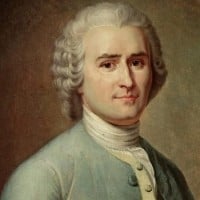
A philosopher and a musical composer. His beliefs on the right to rule brought upon the separation of church and state, as well as the French Revolution.
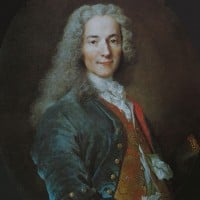 François-Marie Arouet (21 November 1694 – 30 May 1778), known by his nom de plume Voltaire, was a French Enlightenment writer, historian, and philosopher famous for his wit, his attacks on the established Catholic Church, and his advocacy of freedom of religion, freedom of speech, and separation... read more
François-Marie Arouet (21 November 1694 – 30 May 1778), known by his nom de plume Voltaire, was a French Enlightenment writer, historian, and philosopher famous for his wit, his attacks on the established Catholic Church, and his advocacy of freedom of religion, freedom of speech, and separation... read more Highly critical of Christianity, Voltaire advocated for the freedom of religion and separation of church and state. He became a key figure during the period of Enlightenment.
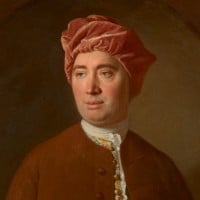
He is one of the modern philosophers with the strongest arguments, and his writings exude a coolness that is lacking in the entire philosophical canon.
Formulated problems of self, identity, and knowledge better than any early modern philosopher before him.
 Friedrich Wilhelm Nietzsche was a German philosopher, cultural critic, poet, and Latin and Greek scholar whose work has exerted a profound influence on Western philosophy and modern intellectual history.
Friedrich Wilhelm Nietzsche was a German philosopher, cultural critic, poet, and Latin and Greek scholar whose work has exerted a profound influence on Western philosophy and modern intellectual history. Famous for his nihilism, Nietzsche was also known for his ideas of seeing things through multiple perspectives, especially good and evil.
Ushered in the postmodern world out of the religious era of Plato and Thomas Aquinas and removed the shackles on the dogmatic world.
 John Locke FRS was an English philosopher and physician, widely regarded as one of the most influential of Enlightenment thinkers and commonly known as the "Father of Liberalism".
John Locke FRS was an English philosopher and physician, widely regarded as one of the most influential of Enlightenment thinkers and commonly known as the "Father of Liberalism". A man who gained prominence during the Enlightenment period, Locke influenced the idea of natural rights and the social contract theory. Locke's beliefs had an impact on the signing of the Declaration of Independence later on.
He is known to many Americans as the man who influenced our early government.
Influence on Classical Liberalism. The ideology that the founding fathers and the revolutionaries of France supported.
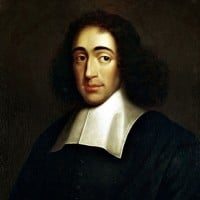
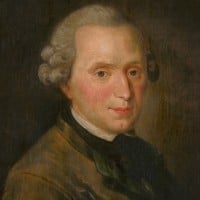
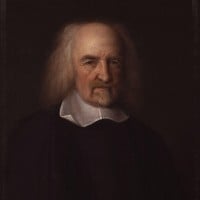
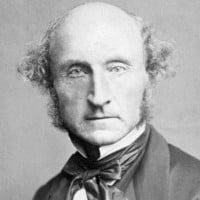
Mill advocated for the limitations of government and the protection of individual rights. He saw history as a battleground between liberty and authority and created a basis for social justice (no, not the kind of social justice you think of nowadays) and human rights.
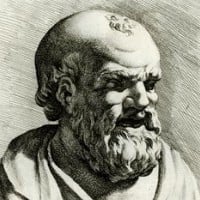
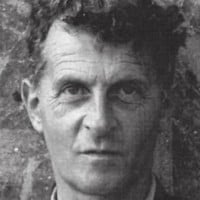
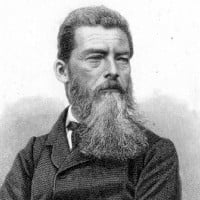
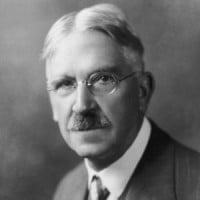
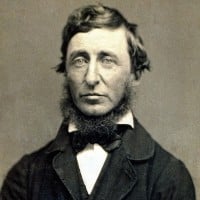
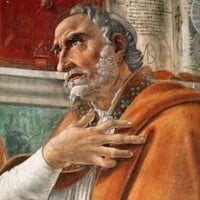
Apart from Jesus and St. Paul, he is the most influential figure in Christianity. He is also a great writer and philosopher who can be read by non-religious people.
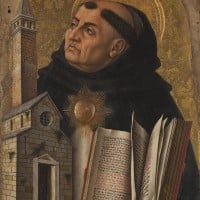
He systematized and synthesized the philosophy of Aristotle with Revelation, proving that faith and reason are not contradictory. His work still serves as a basis of Catholic theology. Much of his work utilizes the mean between extremes that typified Aristotle, and following in his footsteps helped avoid the problems and errors of modern and contemporary times.
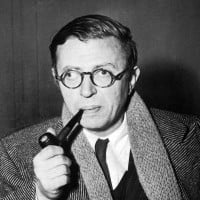 Jean-Paul Charles Aymard Sartre (June 21, 1905 – April 15, 1980) was a French philosopher, playwright, novelist, political activist, biographer, and literary critic.
Jean-Paul Charles Aymard Sartre (June 21, 1905 – April 15, 1980) was a French philosopher, playwright, novelist, political activist, biographer, and literary critic.